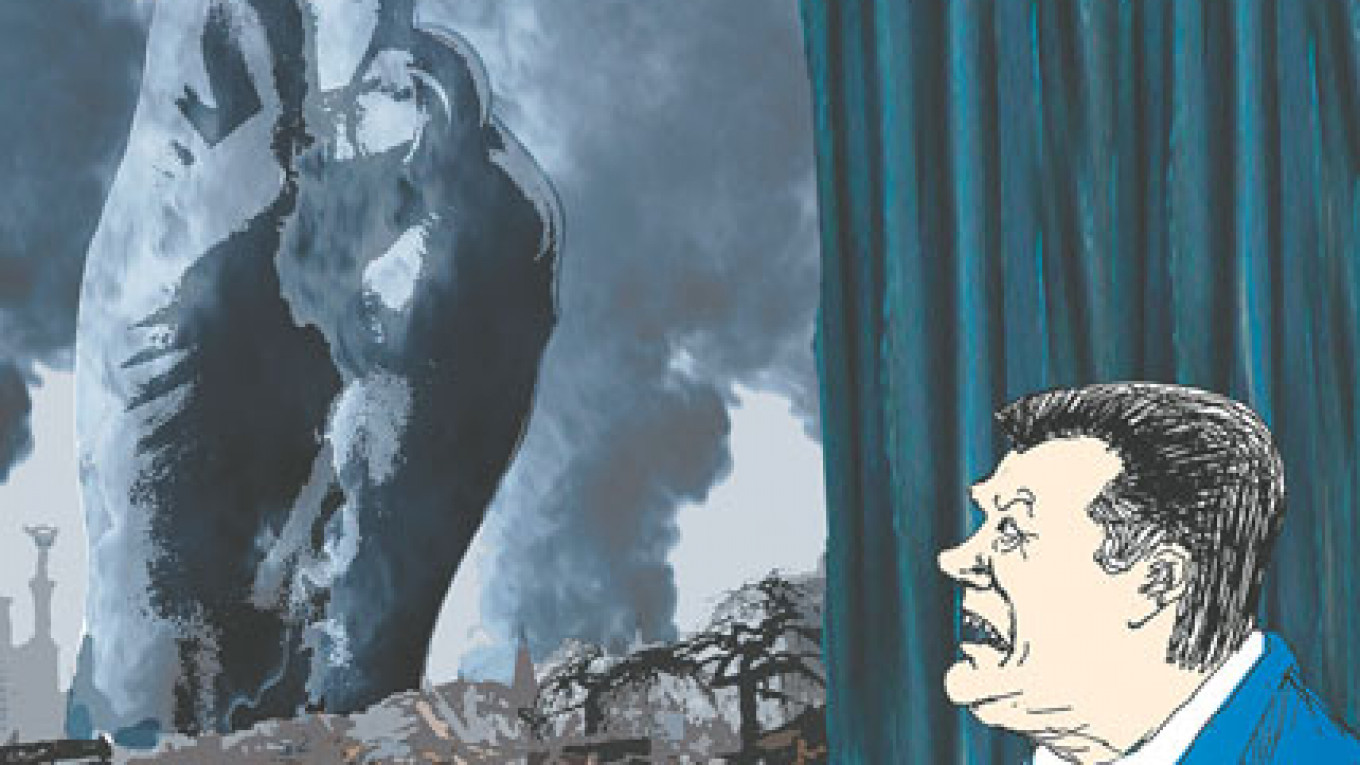The deepening political confrontation in Ukraine makes it possible to form a picture of the protest movement in the 21st century, though it is still young.
Twenty-first century protests like those in Ukraine, and previously in Tunisia, Egypt, Turkey and Thailand, arose in response to domestic problems, as compared to those in Eastern Europe in 1956 and 1989 that were reactions to geopolitical confrontations. The current protests reflect people's deep frustration with the authorities, who treat them like so many cattle when they are, in fact, globally minded, independent thinkers who are fully aware of modern standards of living.
Authorities must now prove their legitimacy on a daily basis. Money and force cannot control the political movements of this global era.
One conclusion is that circumstances justify such protests. According to this argument, in a globalized world, leaders must constantly adapt and change, just as the world is changing, and no "legal" procedures or rules can ensure that they will serve out their term in office if they fail to meet the challenge of the day. In short, the authorities must now prove their legitimacy on a daily basis. That is the universal, though as yet unformulated, demand of this new type of protest.
Burning car tires and tent cities speak less about the failure of a state than they do about the current condition of society. This is evidence of that so-called "liquid modernity" of constant change whose advent European sociologists have long predicted, and no economic costs outweigh the value of new social consensus formed in the fire of confrontation.
The events in Ukraine carry particular significance in this regard. For Europe, they look much like a repetition of the past. Millions of demonstrating Parisians shook the foundations of a very legitimate democratic regime in 1968, and a mass people's movement in Eastern Europe in 1989 opened a new chapter in their history.
We need to get used to the fact that such movements will continue to appear. Security forces have the right to intervene when rioters destroy property or harm civilians, as happens in ethnic pogroms, but not when citizens march on parliament or the local administration. Security forces should protect citizens, and not prevent them from taking back the power that the authorities have usurped. This is the new standard that has largely and implicitly taken shape in Europe and that will soon surprise many autocrats as it becomes fully manifest. Modern Ukraine exemplifies what Russia is almost inevitably destined to become, and that future is all the more dangerous and threatening the longer Moscow views the Maidan protests as a chance occurrence that this country can easily sidestep.
It would be a mistake to consider the events in Kiev and other Ukrainian cities an anomaly. We are witnessing how political systems are changing their notions of the majority. In democratic states over the last 100 years, the majority expressed itself through popular elections with relatively high voter turnouts. However, that situation is changing, and especially in those states that attempt to create only a semblance of democracy. Only 8 to 15 percent of voters typically turn out for local elections in Russia. In races where the mayor or governor requires only a relative majority to win, leaders can take office with the backing of only 5 to 7 percent of the population. And if 5 to 7 percent of the people later take to the streets to demand a politician's resignation, what political legitimacy can he cite?
Little doubt remains that democracy in the 21st century will differ from that of the 20th century. First came democracy not for the masses, but only for select members of society. That was followed by universal suffrage, a form of democracy with only a little more than 50 years of history. In the past, only select citizens were entrusted with decision-making powers; now it is increasingly important that the masses are willing to take responsibility for their country's fate.
Today's Maidan protests are the next step forward — and not back — from the events of 2004. Ten years ago, the people of Kiev refused to accept falsified election results. Today they are rebelling against leaders who hold only formal legitimacy, who abuse their power and ignore the demands of the people. I am convinced that the Ukrainian leader will fall, no matter how many billions of dollars Moscow sends or how many tens of thousands of riot police he deploys around the country. Money and force cannot control the political movements of this global era.
The events of recent years are a completely new political phenomenon. Much as Kremlin leaders wring their hands and accuse demonstrators of using unacceptable measures, protests from Berlin in 1989 and Kiev in 2004 to Istanbul in 2013 and Bangkok in 2014 have been primarily nonviolent. Whatever excesses did take place pale in comparison to the losses suffered by entire countries at the hands of entrenched and ineffective regimes that do not represent the will and interests of the people.
This political phenomenon means that the authorities cannot count on a stultified and silent majority, and that the elections through which it can enlist that kind of support will soon lose their original meaning. A new and progressive class of people is taking shape in a variety of different societies. It is an integral part of a global community of free people who are ready to assume a new and historically significant responsibility. This means that the world of the 21st century will ultimately be governed from the front lines of this movement, where the exigencies of the time are best and most rapidly understood.
Herein lies the answer to the question of who will win "the battle for Kiev." Of course, Europe will come out the winner because it recognizes the legitimacy of the Ukrainian opposition's actions, because it owes its current condition to the revolution of 1989 and because it has spent decades developing its ability to respond to democratic demands. And, of course, because the Russian authorities that point to a political "legitimacy" gained through rigged elections cannot but lose in such a confrontation. That, in my opinion, is more a cause for optimism than pessimism.
Vladislav Inozemtsev is a visiting fellow at the Center for Strategic and International Studies in Washington.
A Message from The Moscow Times:
Dear readers,
We are facing unprecedented challenges. Russia's Prosecutor General's Office has designated The Moscow Times as an "undesirable" organization, criminalizing our work and putting our staff at risk of prosecution. This follows our earlier unjust labeling as a "foreign agent."
These actions are direct attempts to silence independent journalism in Russia. The authorities claim our work "discredits the decisions of the Russian leadership." We see things differently: we strive to provide accurate, unbiased reporting on Russia.
We, the journalists of The Moscow Times, refuse to be silenced. But to continue our work, we need your help.
Your support, no matter how small, makes a world of difference. If you can, please support us monthly starting from just $2. It's quick to set up, and every contribution makes a significant impact.
By supporting The Moscow Times, you're defending open, independent journalism in the face of repression. Thank you for standing with us.
Remind me later.








